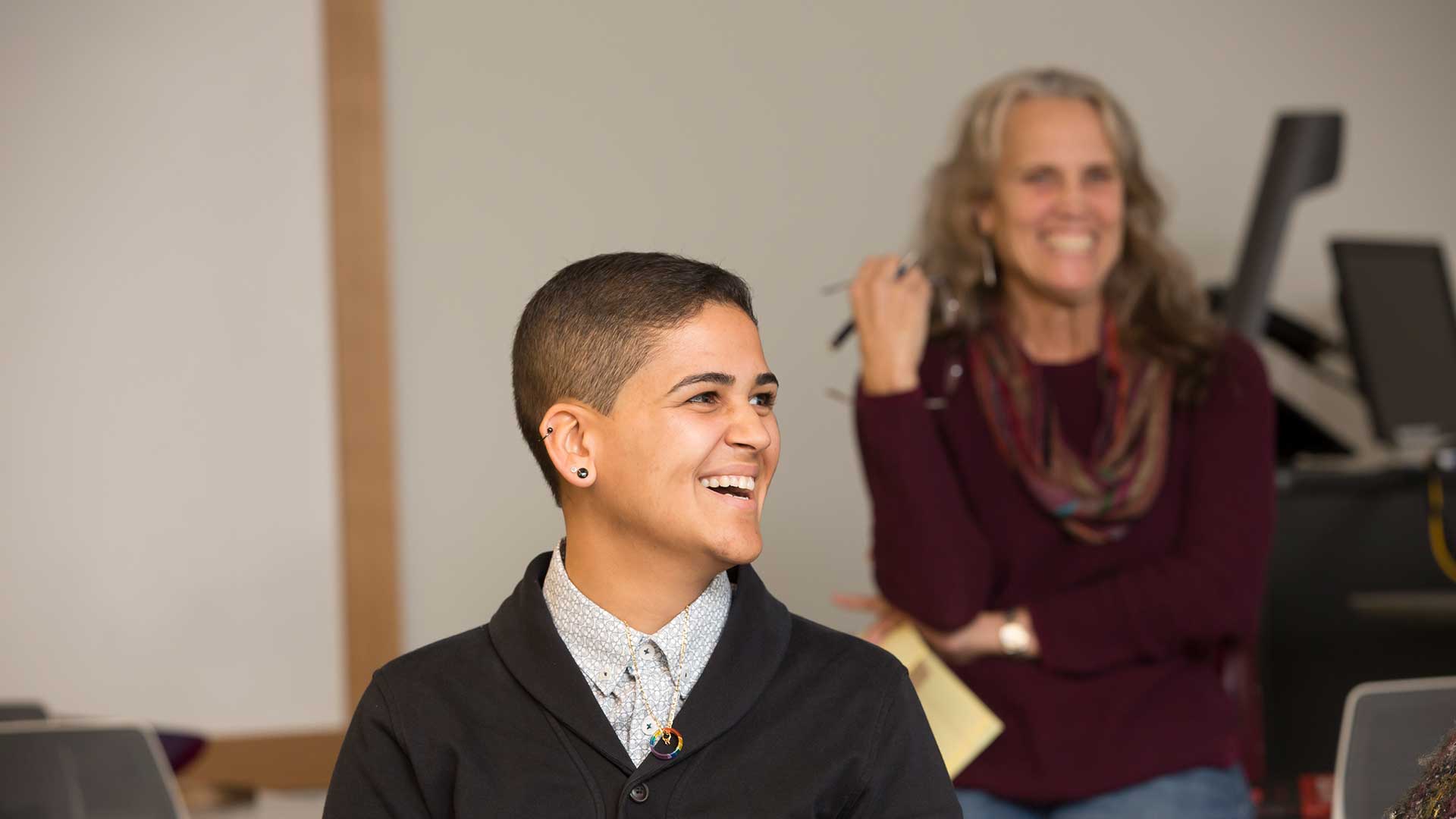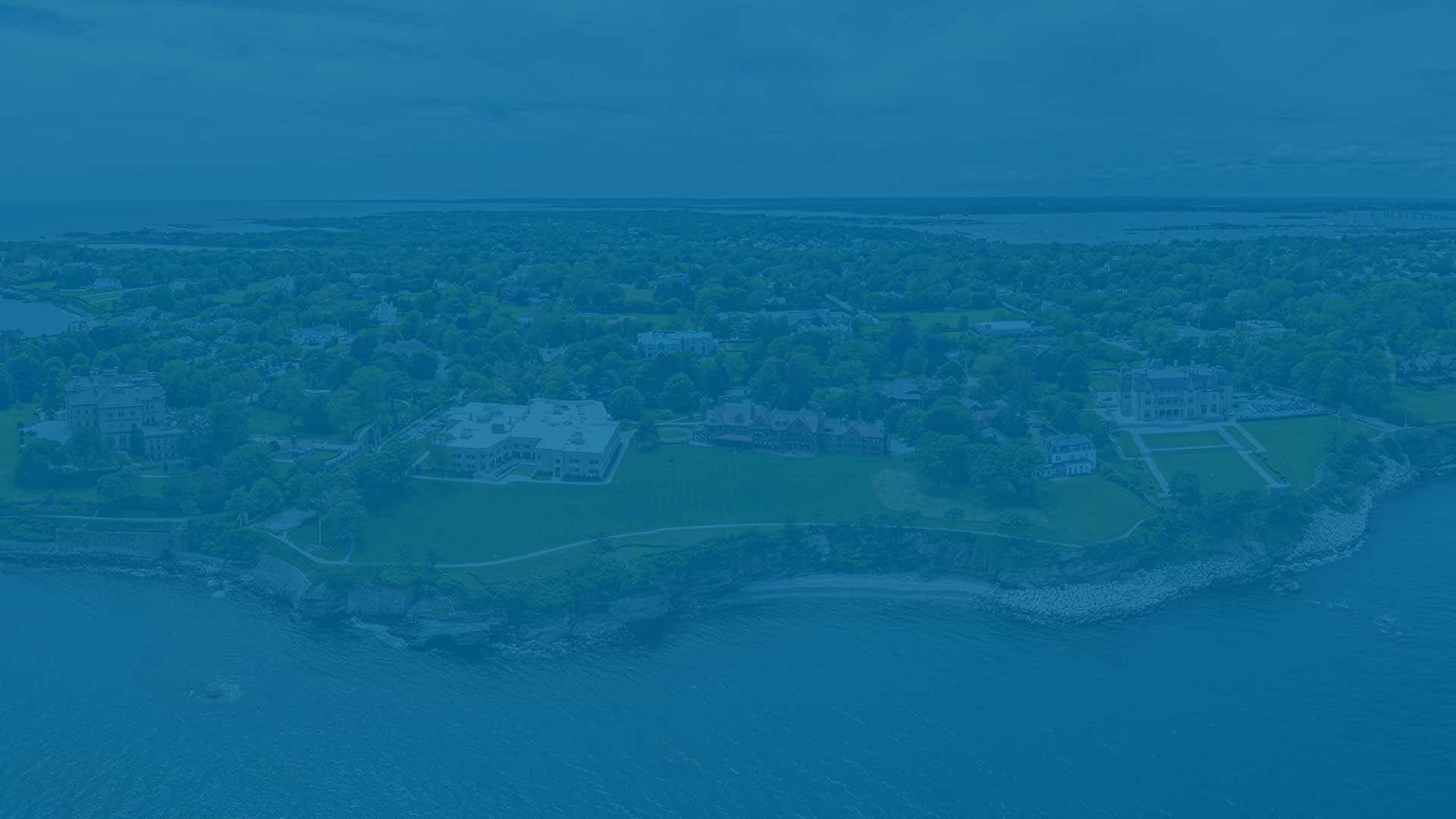
Master's Degree in Clinical Counseling
Salve Regina University's master's degree in clinical counseling integrates exceptional counselor education and training with an approach that looks at mental health from a systemic, holistic and justice-centered perspective. We offer specializations in clinical rehabilitation counseling and holistic clinical mental health counseling – both of which provide the knowledge and skills needed for professional practice in a variety of settings.
Prepare for Counseling Certification and Licensure
Salve Regina's clinical counseling program provides advanced, master's-level training in clinical mental health and rehabilitation counseling, preparing students to address their clients' developmental growth, well-being and challenges. Equipped with a better understanding of various systems (internal, external, social, institutional and global), students establish therapeutic relationships based on respect and dignity.
Through core coursework and unique specializations, our students develop the awareness, knowledge, training, skills and clinical practice necessary for licensure as a mental health counselor in most states. Students who complete the specialization in clinical rehabilitation counseling are also eligible for certification in rehabilitation counseling.
In addition to the master's degree, Salve Regina offers graduate certificates in clinical mental health and rehabilitation counseling with a mental health concentration for practitioners who have a master's degree in a behavioral health field and need to complete their clinical training for licensure. Through our popular accelerated program, qualified Salve Regina undergraduates can begin their master's degree in clinical counseling during their senior (fourth) year.

Discover the Difference at Salve Regina
Elevate Your Career
Our clinical counseling graduates have the education and experience necessary to make an immediate impact in a wide range of helping professions. Additionally, students who complete the 60-credit clinical program are eligible to sit for the mental health counseling licensure exam and obtain certification as rehabilitation counselors.
Pioneering and Affordable
Salve Regina's clinical counseling program is the most affordable in the Northeast, and the holistic clinical mental health counseling specialization is the oldest program of its kind in the U.S. Led by highly accessible, dedicated faculty, we offer a transformative education that emphasizes a holistic, systemic and justice-centered approach.
Dedicated Faculty
Our faculty are full-time scholars and community-based professionals who continuously explore the professional and personal work needed to provide dynamic and creative spaces for students and clients. We work closely with students to launch their careers as mental health counselors in a field that anticipates sustained growth based on a world in need.
Clinical Counseling Curriculum
Salve Regina's 60-credit master's degree in clinical counseling combines coursework in traditional counseling with opportunities for advanced training in evidence-supported holistic and systems perspectives and clinical rehabilitation counseling. Students may take up to 12 credits before choosing a specialization in clinical rehabilitation counseling or holistic clinical mental health counseling.
Suggested exploratory courses include:
- COU500: Professional Orientation and Ethics
- COU501: Human Growth and Development
- COU502: Cultural Equity in Counseling
- COU503: Theories of Counseling
- COU506: Research Methods
We train students to provide services for a diverse group of individuals who require varying levels of support. Students work with clients across the lifespan to address life and relationship transitions, severe and persistent mental health issues, cultural and systemic marginalization and oppression, substance abuse and other disabilities or chronic illnesses.
Time to Complete
3 years
Program Format
Clinical rehabilitation: Online (synchronous)
Holistic clinical mental health: In-person
Application Deadline
March 1, July 1 or Nov. 1
Learn More About Salve Regina's Master's Degree in Clinical Counseling
Our master's degree in clinical counseling prepares students for careers in a wide spectrum of settings, including community mental health centers, disability services, hospitals, college and university counseling centers, substance use programs, private practice, residential care facilities, government organizations and nonprofits. By considering a holistic and systemic approach to mental health, our graduates help their clients thrive.
Embrace a rewarding career – connect with Salve Regina about pursuing our graduate clinical counseling program with unique specializations in clinical rehabilitation counseling and holistic clinical mental health counseling.
Request information to learn more
Ready to apply?